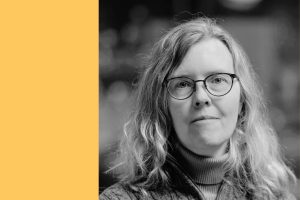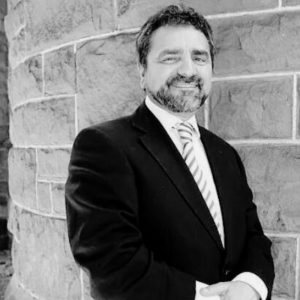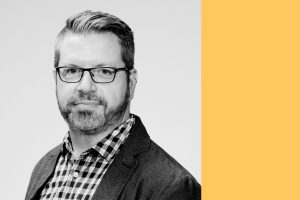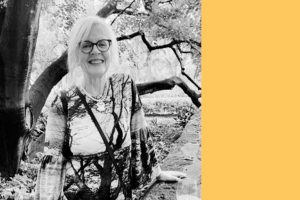Talk & taboo
Australian Academy of the Humanities 2024-08-23
Thursday 14 November, 2.00-3.30pm
Debate about the nation occurs through language, but the impacts of Australia’s changing demographic profile, multicultural ideology and policy, and the reinvigoration of Indigenous languages, have shifted the meaning of Australia as one of ‘the English-speaking peoples’, a still common formulation when Horne was writing The Lucky Country. This session will explore how these changes provided openings for Indigenous languages and cultural resurgence, enabled multicultural understandings of what it means to speak with an Australian voice, and drew conservative resistance that echoes older assimilationist assumptions about the nation.
 Chaired by Dr Amanda Laugesen
Chaired by Dr Amanda Laugesen
Associate Professor Amanda Laugesen is a historian and lexicographer, and is currently director of the Australian National Dictionary Centre at the ANU. She is Chief Editor of the Australian National Dictionary: Australian Words and Their Origins, and the author of numerous books on Australian and US history. Her most recent book is Australia in 100 Words (2024).
Speakers
Professor Emeritus Joseph Lo Bianco AM FAHA
“Senses of Difference” is the intriguing, multi-directional, confused, and confusing chapter of on culture, assimilation, language, ethnicities and comparisons with the US and other societies in Donald Horne’s The Lucky Country. It is here that he takes on the third of three identity forming concepts propounded by Noel Pearson, Guugu Yimithirr elder from Hope Vale Queensland, and prominent Indigenous land rights activist, though he doesn’t ever come to terms with its formative power and effects. These three cultural formations are “our ancient heritage, our British inheritance, and our multicultural triumph” (Pearson, 2014), a triumph Pearson later described as the “Gift of Multicultural Migration“. In The Lucky Country there is no such lofty and eloquent language to capture the culturally constitutive forces of the Australian polity, and none of the now normal celebratory liberal multiculturalism. Instead for Horne the aim is assimilation, and this is “best made in bed”. He states that “Australia has managed to be an immigrant country for most of its history without even thinking about it”. It’s certainly true, or at least it was in 1964, that compared to the USA, Australia had not projected any image of itself as a ‘haven for the oppressed or as a market for the talents of the world’ yet both claims to national chest thumping have become staples of the public boast Australia as the world’s “most successful multicultural society”. In this presentation I will use language policy, and multilingualism, as a lens through which to view Horne’s claims and assumptions as ‘talk and taboo’ and track what they authorised, what they became and what imprint they have left.
Pearson, N. (2014), A Rightful Place: Race, Recognition, and a More Complete Commonwealth. Quarterly Essay, September 2014, QE55.
https://www.quarterlyessay.com.au/essay/2014/09/a-rightful-place
 Joseph Lo Bianco AM FAHA is Professor Emeritus at the University of Melbourne and International Secretary of the Australian Academy of the Humanities. Prior to this he was Chief Executive of Language Australia Ltd: the National Languages and Literacy Institute, of which he was the founder. He has been commissioned to advise on language policy and literacy planning in South Africa, Hawai’i, Italy, New Zealand, Myanmar, Thailand, Malaysia, Western Samoa and other Pacific Island countries, Sri Lanka, Ireland, Scotland and Slovenia. He was a member of the Australian National Commission for UNESCO for 10 years and he previously served as Academy President from 2009–2011. He researches and advises on language and literacy policy, intercultural education and peacebuilding and language rights for minority populations in conflict affected settings in SE Asia.
Joseph Lo Bianco AM FAHA is Professor Emeritus at the University of Melbourne and International Secretary of the Australian Academy of the Humanities. Prior to this he was Chief Executive of Language Australia Ltd: the National Languages and Literacy Institute, of which he was the founder. He has been commissioned to advise on language policy and literacy planning in South Africa, Hawai’i, Italy, New Zealand, Myanmar, Thailand, Malaysia, Western Samoa and other Pacific Island countries, Sri Lanka, Ireland, Scotland and Slovenia. He was a member of the Australian National Commission for UNESCO for 10 years and he previously served as Academy President from 2009–2011. He researches and advises on language and literacy policy, intercultural education and peacebuilding and language rights for minority populations in conflict affected settings in SE Asia.
He has three major publications in press
- Helal and Lo Bianco, Language politics in Tunisia: A study of language ideological debates. Bristol: Multilingual Matters, (currently in press, likely 2024 publication),
- Lo Bianco, Lundberg and Spolsky, (eds), Language Policy and Planning; State of Research and Future Directions, London: Bloomsbury, (likely January 2025 publication)
- Lo Bianco, Loh and Shum, (eds), Supporting Learners of Chinese as a Second Language: Implications for language education policy. Cham, Switzerland: Springer.
Professor James Walker FAHA
Who Speaks Australian English? Language(s) in the Lucky Country
Although not always acknowledged, language lies at the heart of questions of belonging that are central to contemporary debates in Australian society. The linguistic landscape of Australia has changed considerably since Horne’s book was written in 1964: European sources of migration have become eclipsed in recent years by migration from Asia and Africa, and an increasingly diverse set of home and community languages co-exists alongside Australia’s Indigenous languages and its majority language, English. This diversity raises issues of social cohesion in which language plays a crucial role, reflected not only in increasing multilingualism but also in ethnically marked ways of speaking English (‘ethnolects’), the subject of overt public commentary. Ethnolects are sometimes viewed as deficiencies, but recent and ongoing research in Australia’s largest cities shows that they form part of linguistic repertoires that reflect the hybridity of social identities in 21st century Australia. Rather than being intrusions into the linguistic landscape, we can see them as new ways of speaking Australian English.
 James A. Walker is Professor of Language Diversity and Director of the Centre for Research in Language Diversity at La Trobe University. He is internationally recognised for his research on phonetic and grammatical variation in situations of contact, not only varieties of English (in the Caribbean, the Canadian province of Quebec and the multilingual cities of Toronto and Melbourne) but also Sango (Central African Republic), Swedish, regional Chinese and Brazilian Portuguese. He has received research grants from the US National Science Foundation and the Social Sciences and Humanities Research Council of Canada.
James A. Walker is Professor of Language Diversity and Director of the Centre for Research in Language Diversity at La Trobe University. He is internationally recognised for his research on phonetic and grammatical variation in situations of contact, not only varieties of English (in the Caribbean, the Canadian province of Quebec and the multilingual cities of Toronto and Melbourne) but also Sango (Central African Republic), Swedish, regional Chinese and Brazilian Portuguese. He has received research grants from the US National Science Foundation and the Social Sciences and Humanities Research Council of Canada.
After receiving his BA (Honours) in Linguistics (1989) and MA in Anthropology (1991) at the University of Toronto, he worked at IBM Canada before undertaking an MA (1995) and PhD (2000) in Linguistics at the University of Ottawa. He held various positions at York University (Toronto) and was promoted to Professor in 2014. In 2017 he relocated to La Trobe University, where he was Head of the Department of Languages and Linguistics until 2020.
Professor Walker is fluent in French, German, (Brazilian) Portuguese, Spanish and Swedish and has some command of Chinese (Cantonese and Mandarin), Greek and Russian.
Professor Anna Haebich AM FASSA FAHA
Change is coming…
First Nations sharing their knowledge and experiences of living with Country for millennia are challenging long cherished assumptions of ‘an Australian Voice’ about the land and its management, epitomised in Horne’s expression ‘Lucky Country’. Instead, Australia’s roles in colonial land degradation and environmental catastrophes of the Anthropocene are being exposed. Alarm about climate change adds potency to expression of First Nations concerns in recent decades through the public resurgence of First Nations languages in spoken and written forms and the visual and performing arts. First Nations land care practices, notably fire management by skilled rangers, are being restored. Public interest in native plants is soaring and language names used in preference to colonial nomenclature for flora and fauna. However, custodians also face blockages to change from entrenched interest groups. A local Nyungar example is the ARC project Healing Land Healing People on Wilman country south of Perth, led by Indigenous Research Fellow and Wilman Elder Darryl Kickett and fellow Wilman Elders as they seek to establish their carer roles for the new Dryandra National Park through their Healthy Country Plan addressing their goals and strategies for Culture, Country and People.
 John Curtin Distinguished Professor Anna Haebich AM, FAHA, FASSA [Curtin University], is a multi-award-winning historian and author. Her wide-ranging career, much focused on engaging with Nyungar families, appears in academic and popular publications, exhibitions, and audio-visual works. Anna and her husband Willman Elder Darryl Kickett are proud grandparents and great grandparents. They are currently collaborating on two ARC projects: the ARC Indigenous project Healing Land Healing People at Curtin University led by Darryl and Discovery project Ancestors Words: Nyungar Letter Writing in the Archives (1860-1960s) led by Anna. She led an award-winning community project on the iconic Queensland Bunya tree and contributes to debates about German botanical collections from colonial Australia. Anna also has a degree in visual arts and has exhibited in several group exhibitions. Anna was named in the Australian Academy of Humanities publication, The Power of the Humanities, as one of Australia’s 20 leading national researchers. She was recently awarded an AM for her ‘significant contributions to literature’. Her book Dancing in Shadows, Histories of Nyungar Performance was shortlisted for the 2019 Prime Ministers Award, where the judges commented that Anna ‘personifies the spirit of reconciliation, ethical research, commitment, and generosity.’
John Curtin Distinguished Professor Anna Haebich AM, FAHA, FASSA [Curtin University], is a multi-award-winning historian and author. Her wide-ranging career, much focused on engaging with Nyungar families, appears in academic and popular publications, exhibitions, and audio-visual works. Anna and her husband Willman Elder Darryl Kickett are proud grandparents and great grandparents. They are currently collaborating on two ARC projects: the ARC Indigenous project Healing Land Healing People at Curtin University led by Darryl and Discovery project Ancestors Words: Nyungar Letter Writing in the Archives (1860-1960s) led by Anna. She led an award-winning community project on the iconic Queensland Bunya tree and contributes to debates about German botanical collections from colonial Australia. Anna also has a degree in visual arts and has exhibited in several group exhibitions. Anna was named in the Australian Academy of Humanities publication, The Power of the Humanities, as one of Australia’s 20 leading national researchers. She was recently awarded an AM for her ‘significant contributions to literature’. Her book Dancing in Shadows, Histories of Nyungar Performance was shortlisted for the 2019 Prime Ministers Award, where the judges commented that Anna ‘personifies the spirit of reconciliation, ethical research, commitment, and generosity.’
More speaker details to be announced for this session
The post Talk & taboo appeared first on Australian Academy of the Humanities.